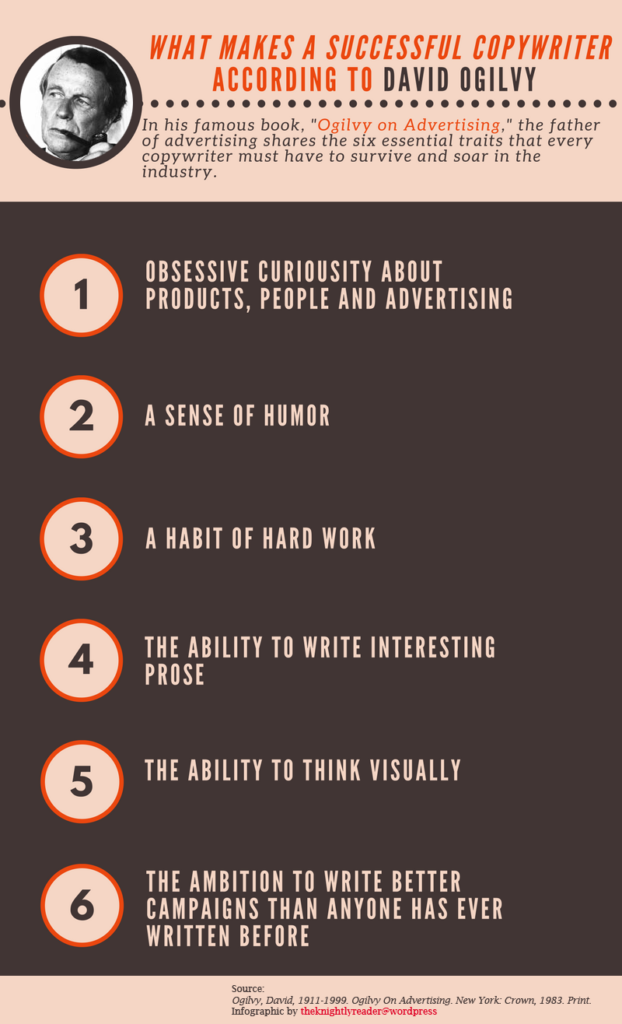
Table Of Contents
- Copywriting Qualities
- How to Become a Copywriter
- Copywriter Skills
- Money Matters
- Key Takeaways
- Conclusion
- FAQs
Does copywriting seem intriguing to you? Do you want to be a copywriter? This step-by-step guide can tell you how to become a copywriter and offer some tips for you to make the best of your writing talent!
Becoming a copywriter may seem easy and fun, but just a flair for writing does not make you a copywriter. You need to know how to follow the client’s brief and communicate the message such that the target group is encouraged to take action. The Oxford Dictionary defines a copywriter as ‘A person whose job is to write the words for advertising material.’ Simple? Pretty much. A copywriter writes everything that goes out as text in advertising material from a brand. Copywriting is a profession and not something you’d want to pursue as a hobby. It takes a lot of hard work to think creatively and write like a copywriter. The main goal here is to drive action and not just educate your audience. Let’s look at some basics of copywriting to get you started.
Copywriting Qualities

A good copywriter must have the following qualities:
1. Has good vocabulary
A copywriter is expected to repeatedly write about the same brand and/or product for different advertisements, so having a vast vocabulary only enhances the creative process. You can always play around with the words to make them more appealing.
2. Knows the difference between content and copy

Everything you see online, on TV, on billboards, etc., is content. Instagram reels and newspaper articles are also content. But, what makes content different from the copy? Copy makes you take action. The shoe advertisement you saw while scrolling through Facebook. That has a copy. Any piece of content that asks you to do something, online or offline, is a copy. CTA (Call-To-Action) is one of the essential parts of a copy.
3. Is passionate and curious about advertising
If you love marketing and advertising, copywriting will become an easier feat to achieve as you will constantly find yourself observing what other brands are doing. When you start analyzing these day-to-day things, you will be able to articulate better, and in turn, win hearts (and sales) as a copywriter.
4. Thinks out of the box
As clichéd as it sounds, it’s still something that has kept the advertising industry on its toes. Repetitive advertising has never succeeded and probably will never succeed. So, your audience will always love original, crazy, and sometimes downright wacky ideas. Give them something out of the ordinary, something that makes people exclaim, “Did they just do that?!” and your advertisement is a hit!
How to Become a Copywriter
1. Build a portfolio
This will help the client understand your skill better and determine if your writing resonates with the brand’s voice. A good portfolio would have published articles as well as samples for different genres and industries.
2. Set up your blog
If you are just starting as a copywriter, you can still showcase all the previous content pieces you produced as part of your blog. Setting up a blog is not very difficult; moreover, it allows you to publish your own content, making your portfolio look even more professional when pitching to get new projects.
3. Sign-up for freelance work
Sign up on websites like Pepper Content and the likes to find good work that pays well.
4. Highlight good reviews and testimonials
Whenever you complete assignments, make sure that you reach out to the clients you work for, for a review or testimonial of your work. This will help you build your brand as a copywriter. The better your reputation, the better and higher the number of assignments you will get.
5. Work for a little less sometimes
Learn to say yes to opportunities. This just means that even if the project pays a little less than what you expect, take it on for experience and exposure. This is especially vital for when you are starting.
6. Build your network
Use various websites and events to network. LinkedIn is a great platform to find accomplished writers in your network and connect with potential clients.
7. Understand AIDA
Attention, Interest, Desire, and Action (AIDA) is a marketing communication concept that should be the foundation for every advertising communication. Your copy should grab attention, elicit interest, generate desire, and finally call for action from the target audience.
8. Learn to run paid ads
Paid ads can help you improve your sellability. Run search ads on Google using your blog to sell your services online. This can increase the number of projects you get.
Copywriter Skills

1. Flair for writing content
Well, this is a given. Any copywriter must have an interest in writing. And, if you have a way with words, copywriting will come easily to you.
Be updated: Stay up to date with world events, and everything happening in the advertising space will inspire you.
2. Editing and proofreading
Your copy needs to be error-free. Error-free content has a better impact on its audience and also on the brand’s reputation.
3. Know your customers
Your target audience determines the kind of copy expected and the kind of action you can push them to take.
4. Know your clients
The brands you write for have a voice of their own. A B2B manufacturing company would interact differently with its audience as compared to a local restaurant.
5. Discipline
A copywriter needs to be disciplined in their work and submit projects before the deadline. This helps create a good reputation as well.
6. Confidence
Be confident about your work. Of course, be open to constructive criticism and stand your ground if you think your idea is worth the fight.
7. Creativity
Unique content is gold in the advertising industry. Creating copy from scratch and maintaining integrity is crucial in this profession.
8. Know your value
You need to be able to negotiate based on the general pricing in the market as compared to the value you provide as a writer.
Money Matters
Now for the million-dollar question! How much does a copywriter make? Typically, in India, a copywriter can earn between ₹4000 and a whopping ₹1,20,000 a month! As a profession, copywriting is a goldmine; the deeper you dig (the more time you spend in it), the bigger the rewards.
However, multiple factors can affect how much copywriters make.
1. Experience
Your experience as a copywriter, freelance or otherwise, can help you find the correct figure for your proposals. If you are a fresher, you will either be assigned fewer projects or paid less for the same kind of work. A lot of freelance work is assigned based on the copywriter’s reputation.
2. Published portfolio
Whether you are a published writer or not is also a major determining factor for the work you get. It simply means that if you have written a copy before and it has been published in any way or form, you can get paid more than someone who has just started or has done work that hasn’t been published yet.
3. Your location
This does not seem fair, but it is pretty accurate. There is a disparity between the pay you get in different regions, either from the same country or other countries. There is not much you can do about it, but it affects how much a copywriter makes.
4. Quality of your work
As a freelance copywriter, you will be asked to submit samples of your work, which will help determine your writing style and the quality of the copy you produce.
5. Attitude
Although a very tertiary factor, your attitude towards your client and your work does affect your pay when it comes to freelancing. As a freelancer, you are expected to be flexible and accommodating. If the client wants you to add something that they feel is pertinent to the brand’s voice, you will have to. If the client wants you to rework the copy during business hours, you have to.
Key Takeaways
- Just being a good writer does not make you a good copywriter.
- Build your writing skills by reading about copywriting
- Read good copy, follow advertising houses and brands known for their impactful copy.
- Create the perfect portfolio with different genres and industries as a target
- Know the people you work with and for
- Always know your worth as a copywriter.
- Try to take on as many assignments as you can that fit your capacity and provide you with the exposure you need. Don’t just say no to good assignments because the pay is lesser than you expected.
- Get reviews and testimonials from previous clients to improve your standing amongst other copywriters.
- Make sure you earn what you deserve and sign up on websites that promise you good pay and regular work.
- Finally, create impressive, unique copies and build your brand as a copywriter!
Conclusion
If you read this article, you are more prepared to be a copywriter than I was when I started. Whenever in doubt, you should always reach out to someone who has experience in the field. If you want to learn more about being a good copywriter, you can always read more of our blogs.

FAQs
Copy constitutes words written in any advertising material. It essentially encourages the audience to take action. Content is everything with or without a CTA.
A good copy carries a subtle or prominent CTA, which drives its audience to take said action. This may, most times, convert to sales. This is why copy is essential for businesses.
A copywriter’s portfolio is a collection of all the writing work they have done in the past. This is important for them to showcase their talent when sending out proposals for new projects to potential clients.
Your portfolio should have all published and non-published articles. It should also contain samples for different genres and industries to show your capabilities as a writer.
Sign up on websites that offer freelance opportunities. You can also connect with your LinkedIn network to find freelance opportunities. Try to find opportunities among your family and friends (it is helpful for you as a beginner).
Latest Blogs
Explore how Google’s 2025 AI search updates triggered ranking chaos. Learn actionable strategies to adapt your SEO for AI Overviews, zero-click searches, and SERP volatility. Stay ahead now.
Learn how to rank on AI search engines like ChatGPT, Perplexity, and Gemini by optimizing your content for authority, structure, and relevance. Stay ahead in AI-driven search with this strategic guide.
Explore the best healthcare SEO services for your medical practice. Improve online visibility and effectively reach more patients in need of your services.
Get your hands on the latest news!
Similar Posts

B2C Marketing
5 mins read
Top Choices for Best Content Marketing Services in B2B Industries

Artificial Intelligence
5 mins read
How A Lead Generation Specialist Can Use AI-Powered Content Funnels to Drive Conversions

Artificial Intelligence
4 mins read